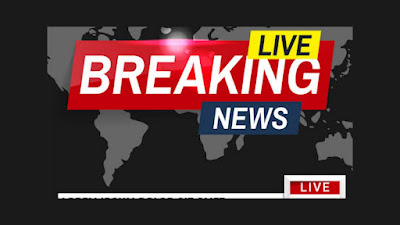By Hugo BachegaBBC News, Lviv, Ukraine
Ukraine's President Volodymyr Zelensky has said peace talks will continue with Russia despite accusing Moscow of war crimes and genocide.
Mr Zelensky was speaking in Bucha, near the capital Kyiv, where bodies of civilians were found strewn on the streets after Russian troops withdrew.
The shocking videos and photos sparked outrage around the world and calls for further sanctions against Russia.
Without evidence, Russia said images of atrocities had been staged by Ukraine.
Ukraine started a war crimes investigation after it said the bodies of 410 civilians had been found in areas around Kyiv. Some were discovered in mass graves while others had their hands tied and had apparently been shot at close range.
Wearing a bullet-proof vest and surrounded by Ukrainian soldiers, Mr Zelensky said Russian troops had "treated people worse than animals". "That is real genocide, what you have seen here," he said.
Responding to a question from the BBC on whether it was still possible to talk peace with Russia, Mr Zelensky said: "Yes, because Ukraine must have peace. We are in Europe in the 21st Century. We will continue efforts diplomatically and militarily."
In other developments:
- The International Red Cross said members of a team trying to organise evacuations from the besieged city of Mariupol had been detained by police in the nearby town of Manhush
- Despite pressure from EU, Germany warned that cutting off Russian gas supplies to Europe was not a possibility at the moment
- The UK was expected to push for further international sanctions against Russia as reaction to the evidence of atrocities
In the town of Bucha, witnesses described Russian soldiers firing on men fleeing after refusing to allow them to leave through humanitarian corridors.
At least 20 dead men were found lying in the street, many of them with extensive wounds. Some had been shot through the temple, as if executed, while others had clearly been run over by tanks.
Satellite images taken by Maxar show a 14m (45ft) mass grave in the city near the church of St Andrew and Pyervozvannoho All Saints.
In the nearby village of Motyzhyn, a BBC team were taken to see a shallow grave. Four bodies were visible, and Ukrainian officials said there could be more.
Three of the bodies have been identified as that of the head of the village, Olha Sukhenko, her husband and her son. The fourth has not been identified yet. It is unclear when they were killed.
In Irpin, there is evidence of people being shot at as they tried to flee the commuter town. On 6 March four civilians - a woman, her teenage son, her daughter of around eight years of age, and a family friend - were all killed by mortar fire as they tried to cross a battered bridge.
In an interview with the BBC, the Ukrainian Foreign Minister, Dmytro Kuleba, said the "Bucha massacre [was] a game changer" but that the "worst was yet to come". He urged Western nations to provide Ukraine with more weapons and impose more sanctions on Russia.
But Sergei Lavrov, the Russian foreign minister, described the alleged atrocities in Bucha as an "act" that had been "staged" several days after Russian forces withdrew, according to Tass news agency. The Kremlin spokesman, Dmitry Peskov, told journalists that Russia "categorically rejected all allegations".
US President Joe Biden repeated his accusation that the Russian president, Vladimir Putin, was a war criminal and said Washington would call for a war crimes trial. "This guy is brutal. And what's happening in Bucha is outrageous, and everyone's seen it," Mr Biden said.
War in Ukraine: More coverage
- LIVE: Latest updates from Ukraine
- A FAMILY LOST: Father grieves couple killed outside Kyiv
- SECURITY: Europe's new era facing Russian threat
- WATCH: One woman's journey out of Ukraine in real time
- READ MORE: Full coverage of the crisis
-
- 1 day ago
-
- 1 day ago
-
- 2 days ago






comment 0 Comments
more_vert